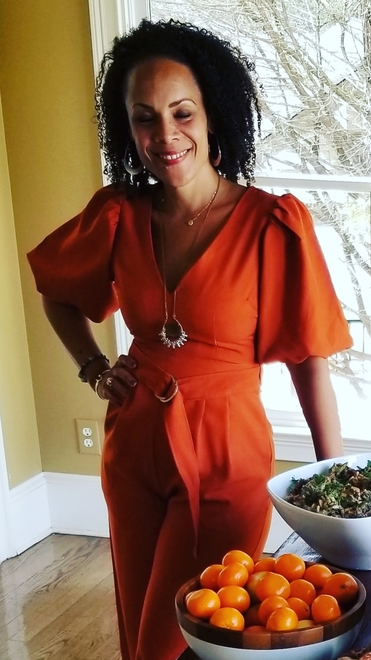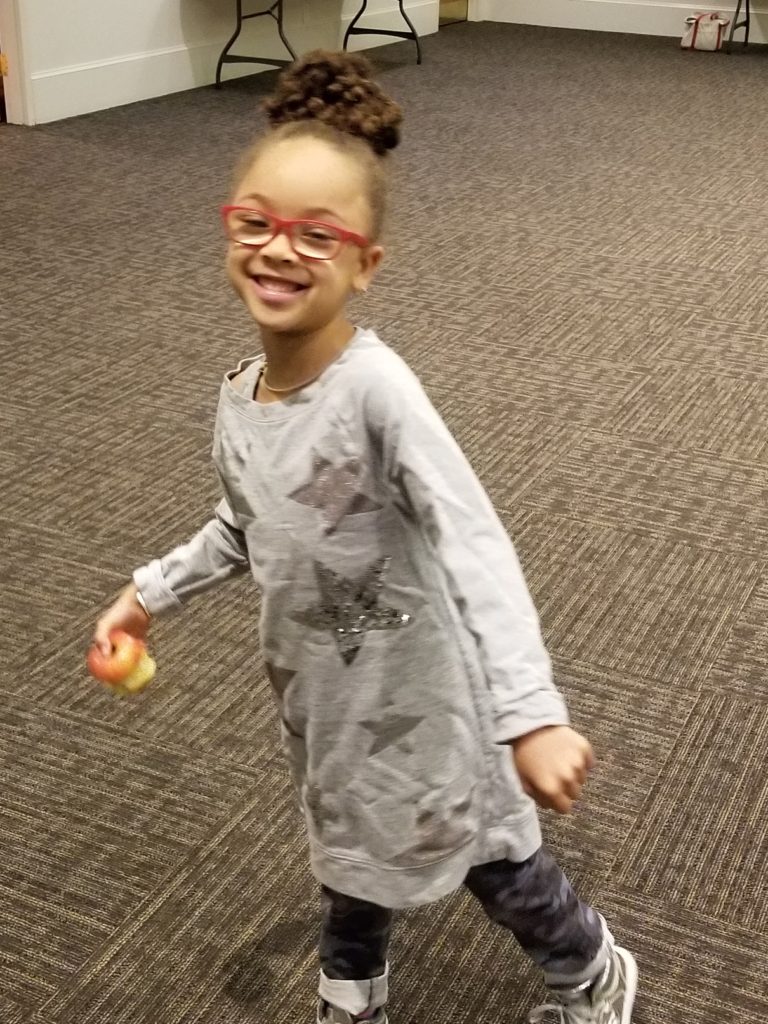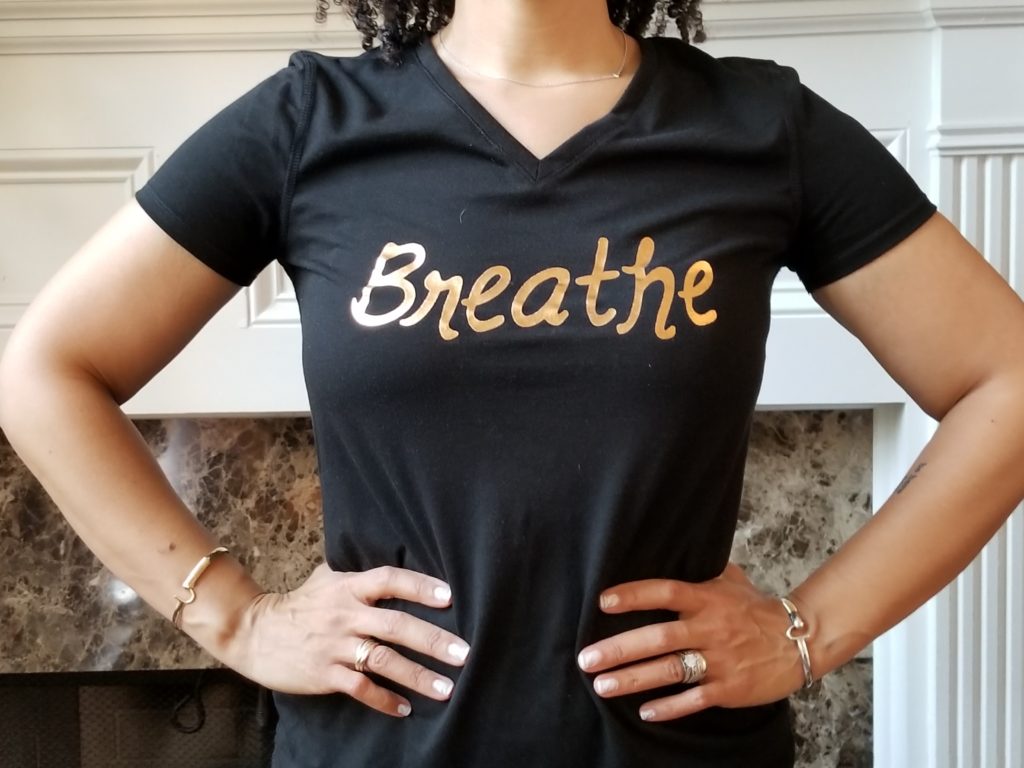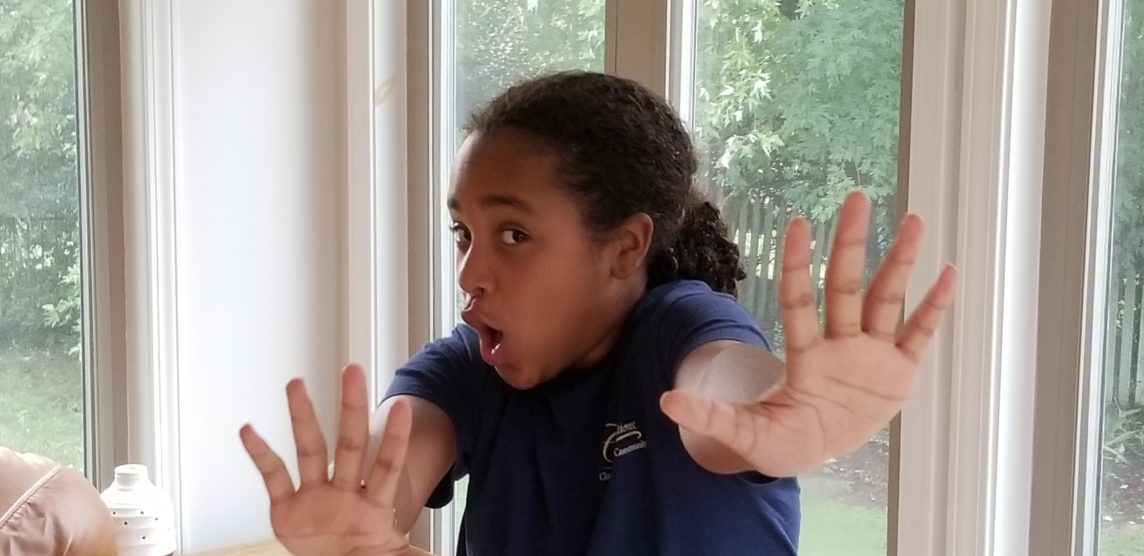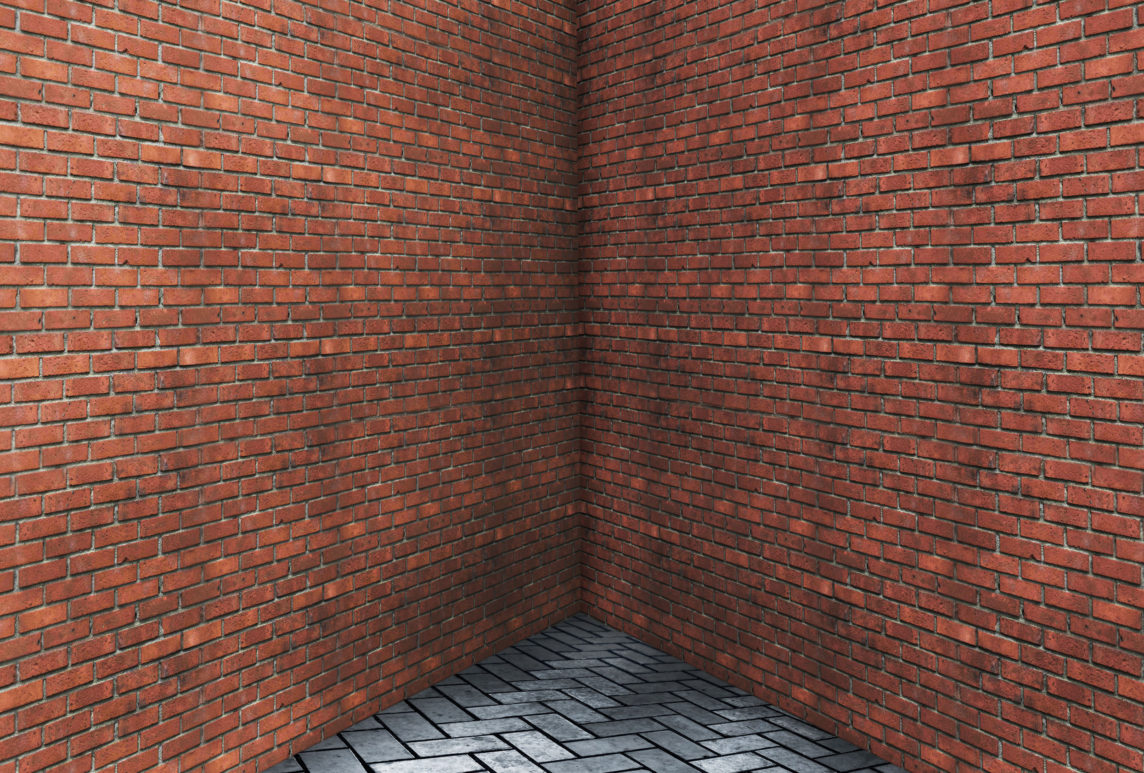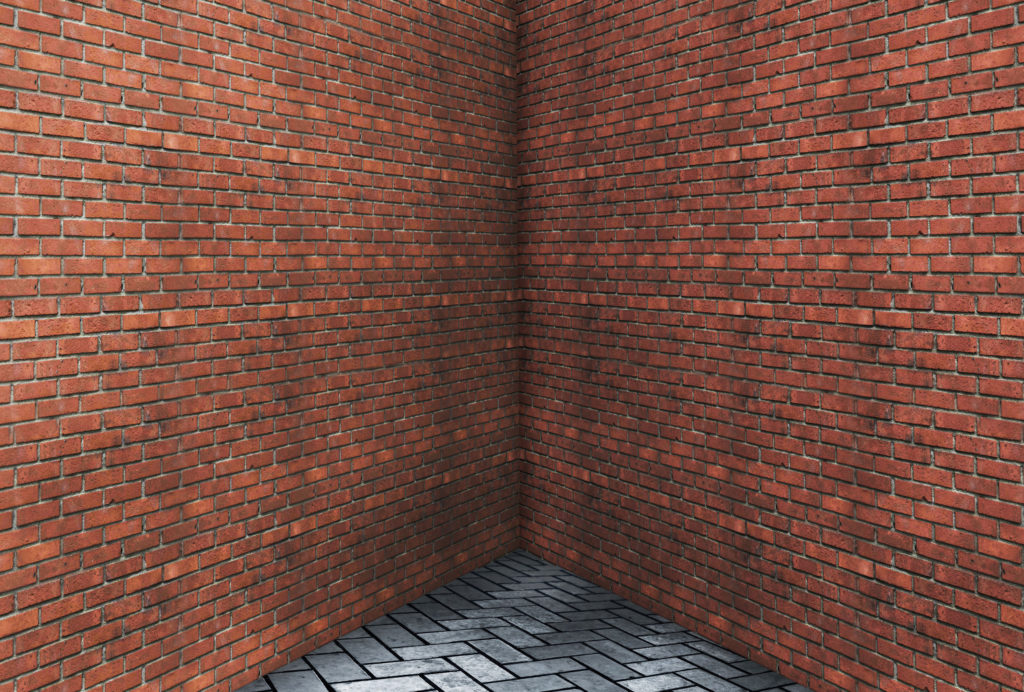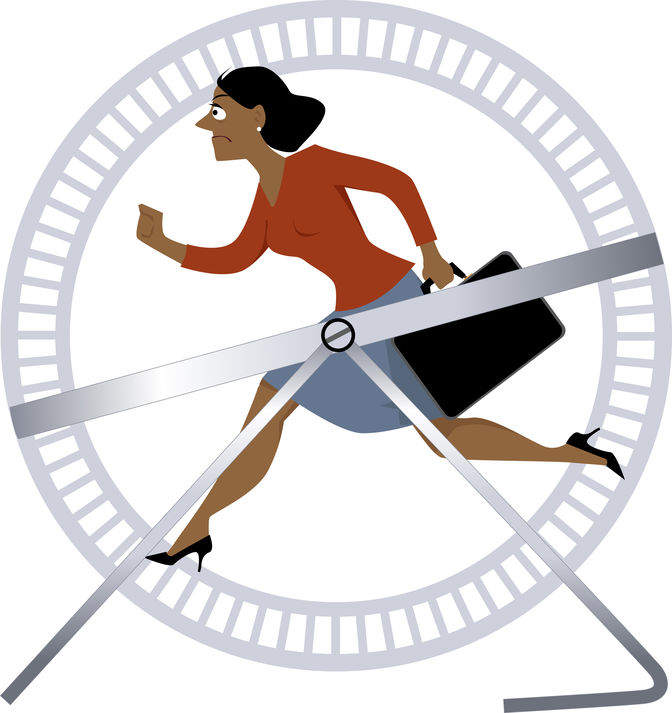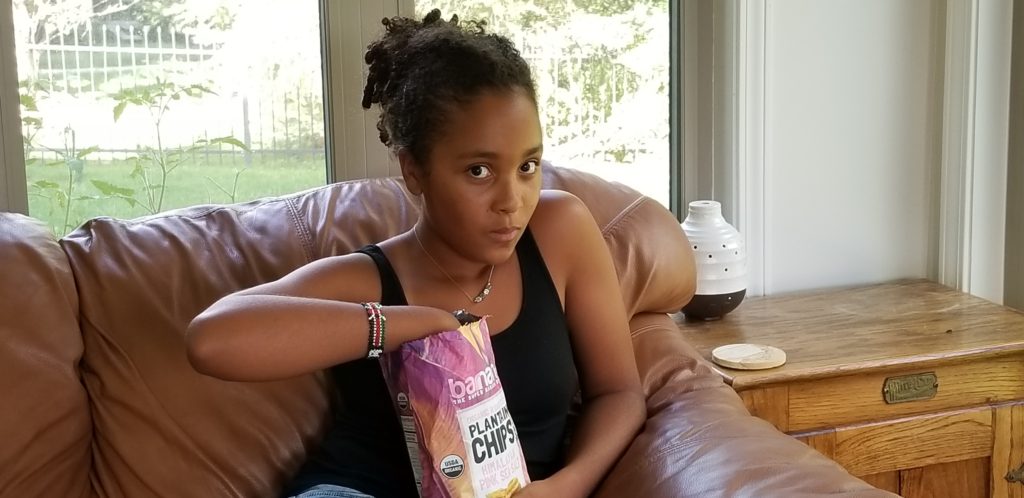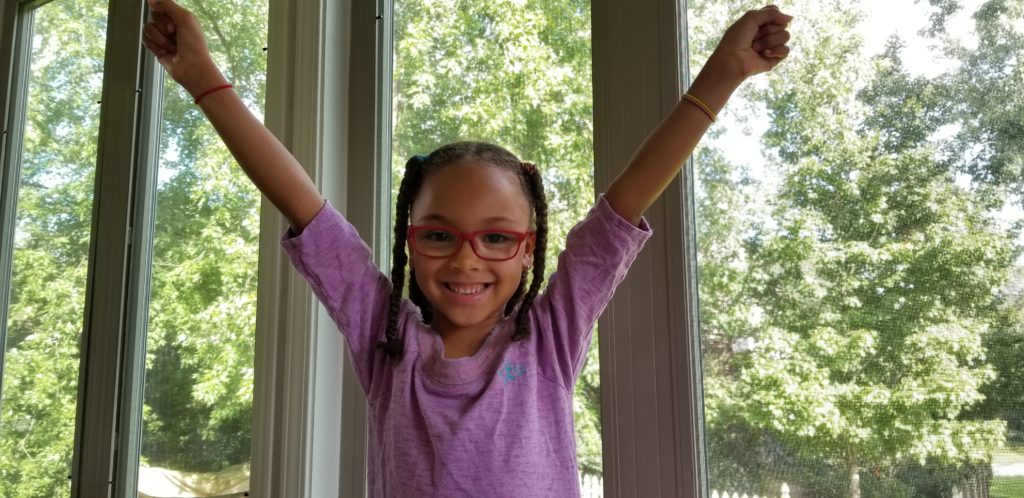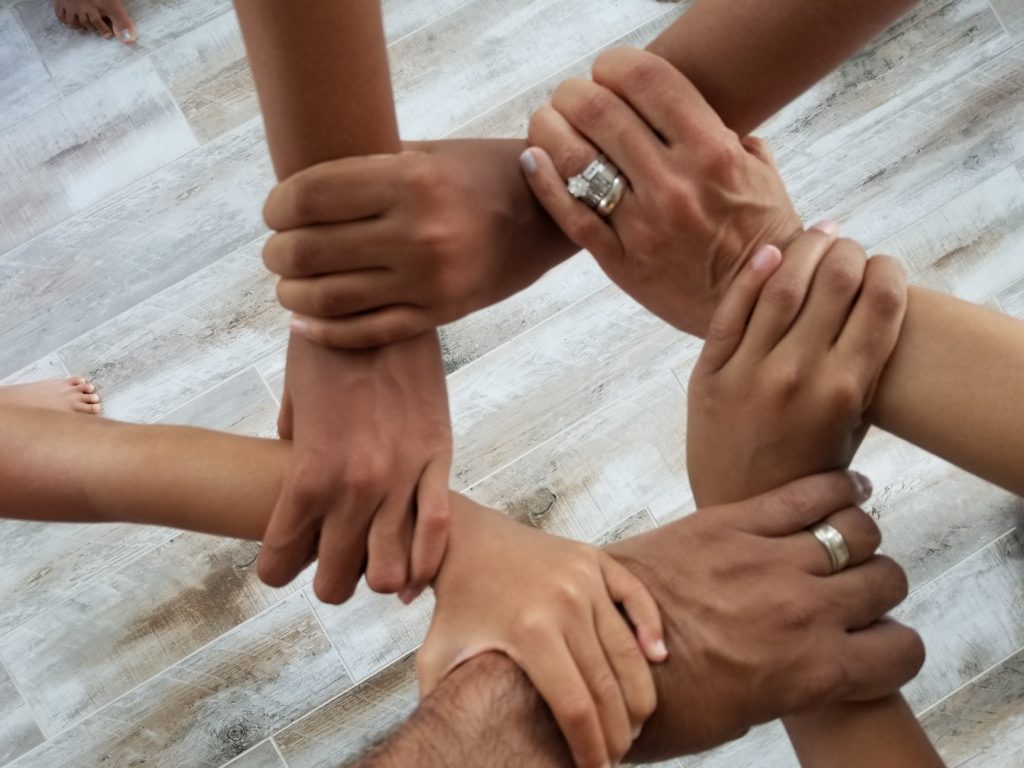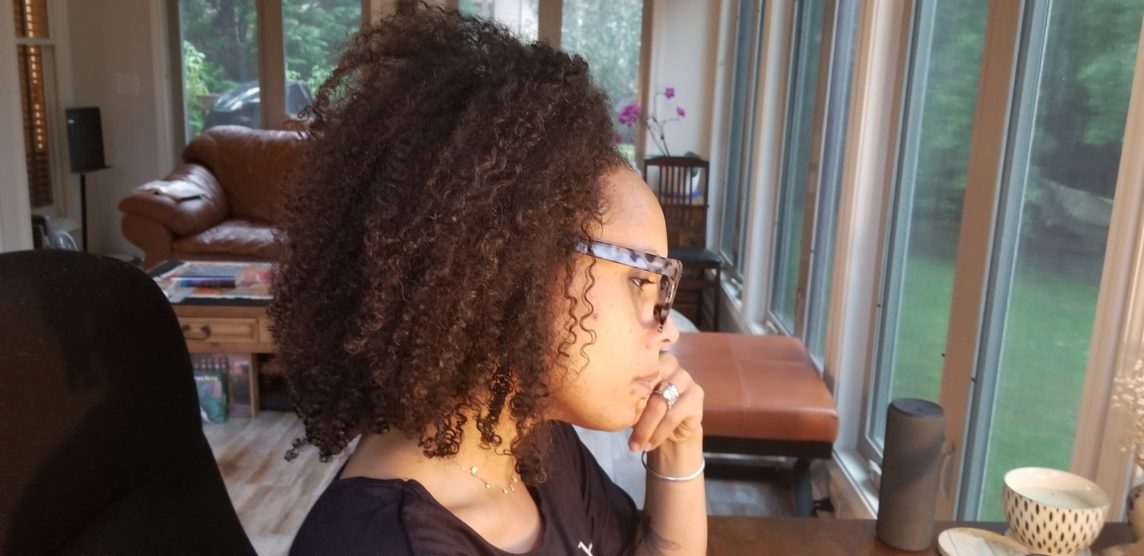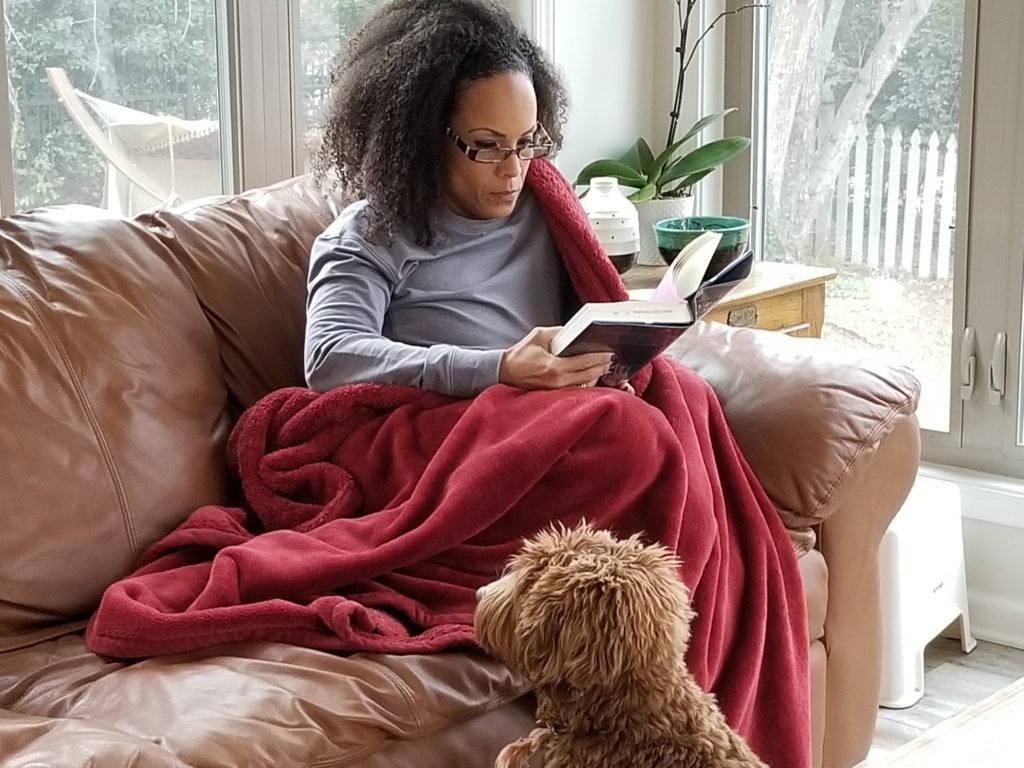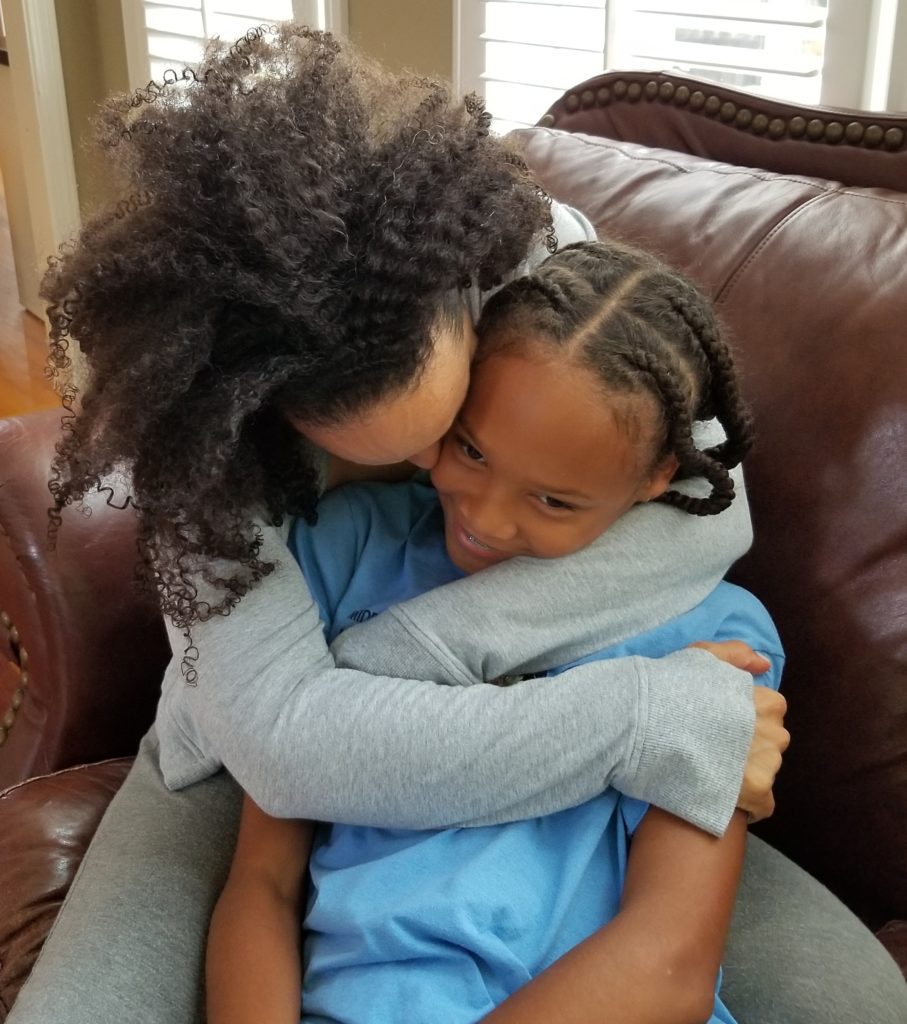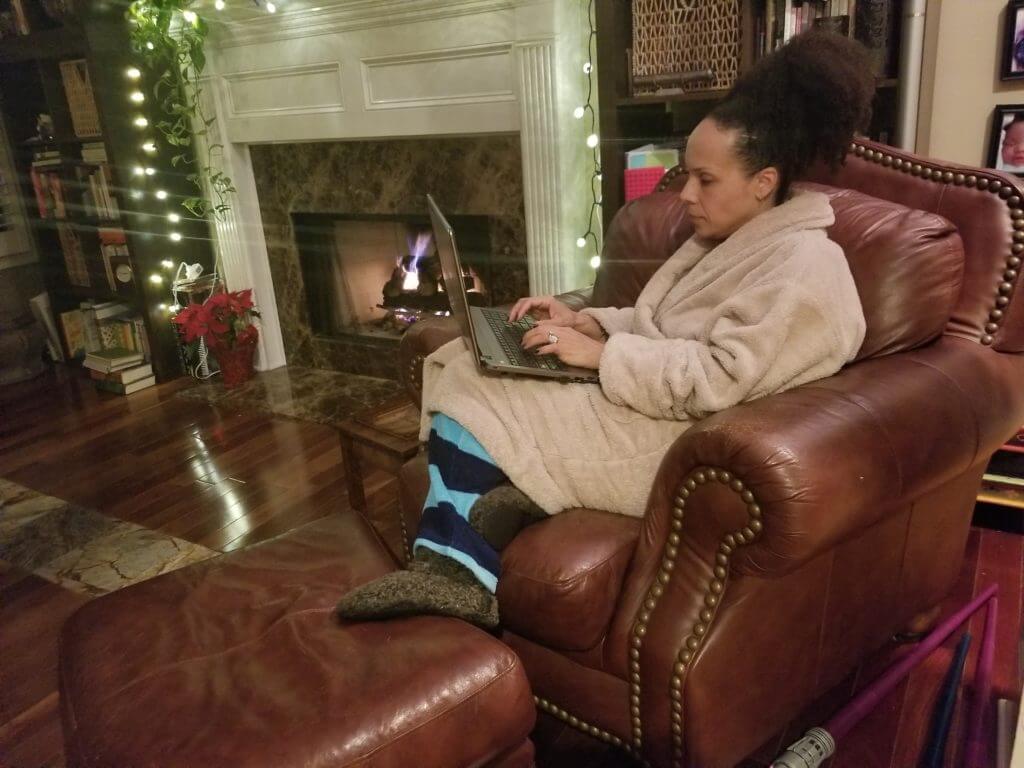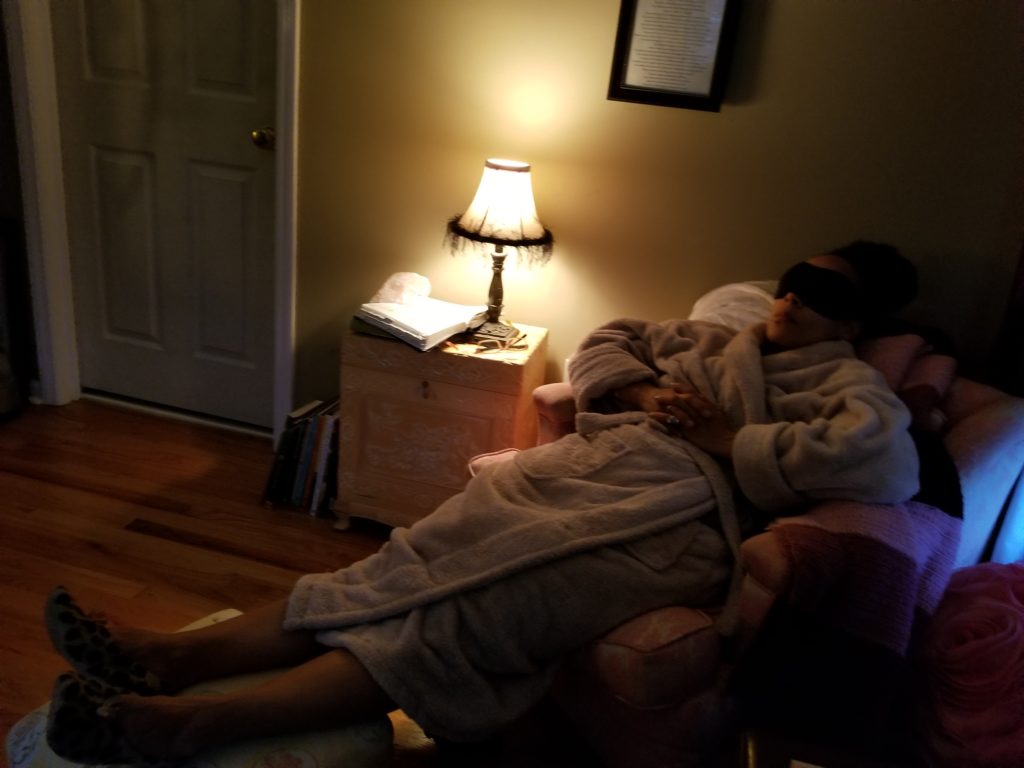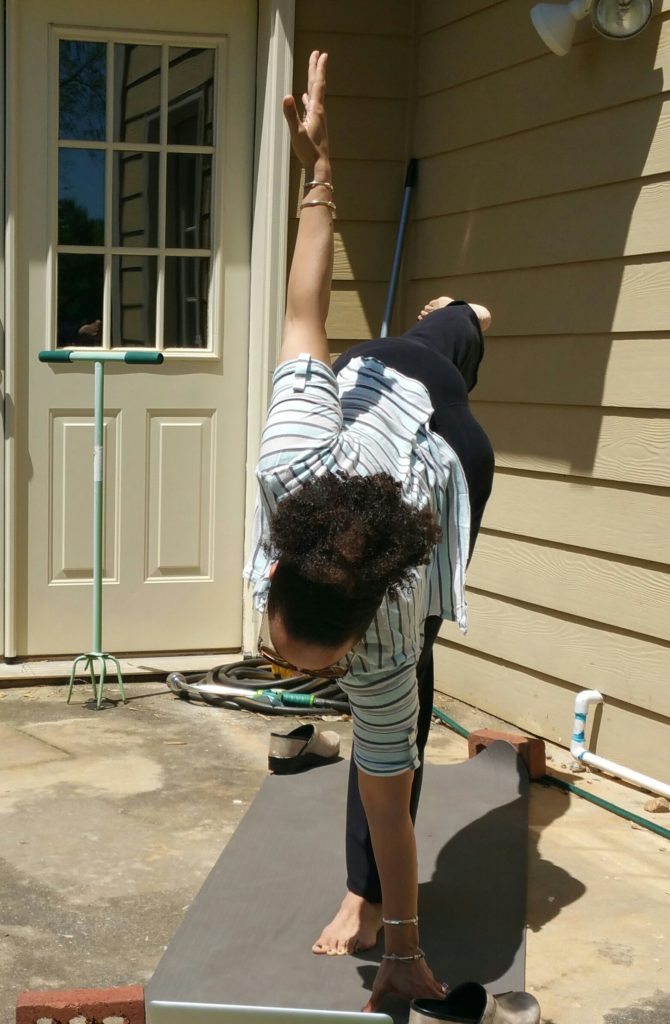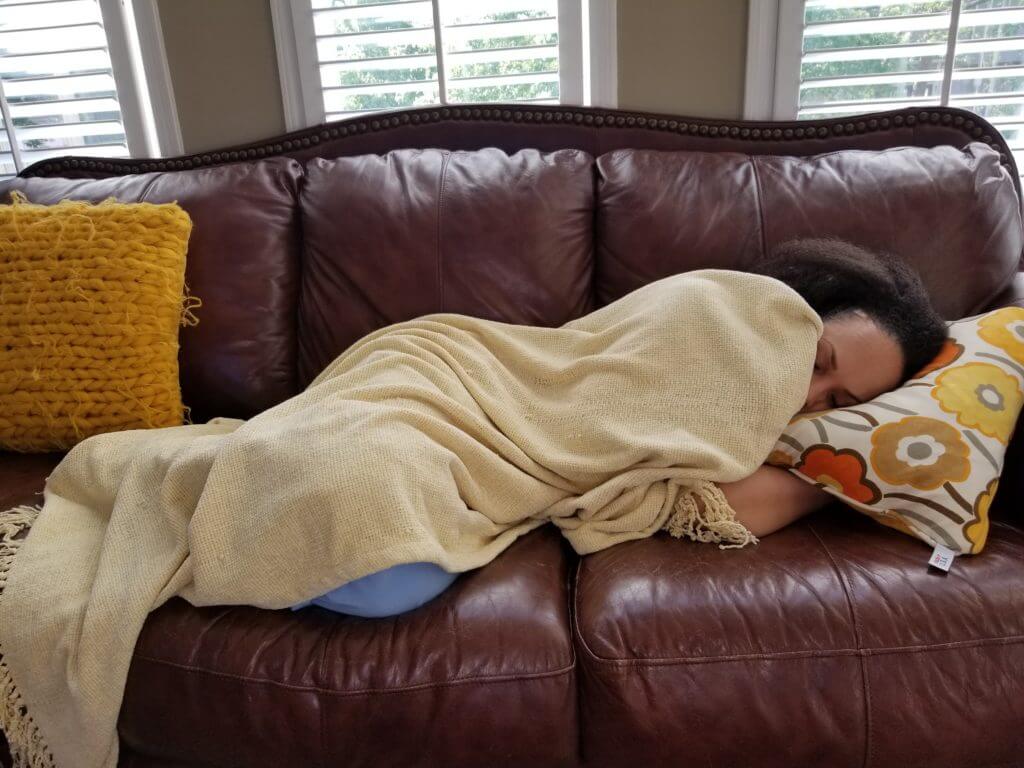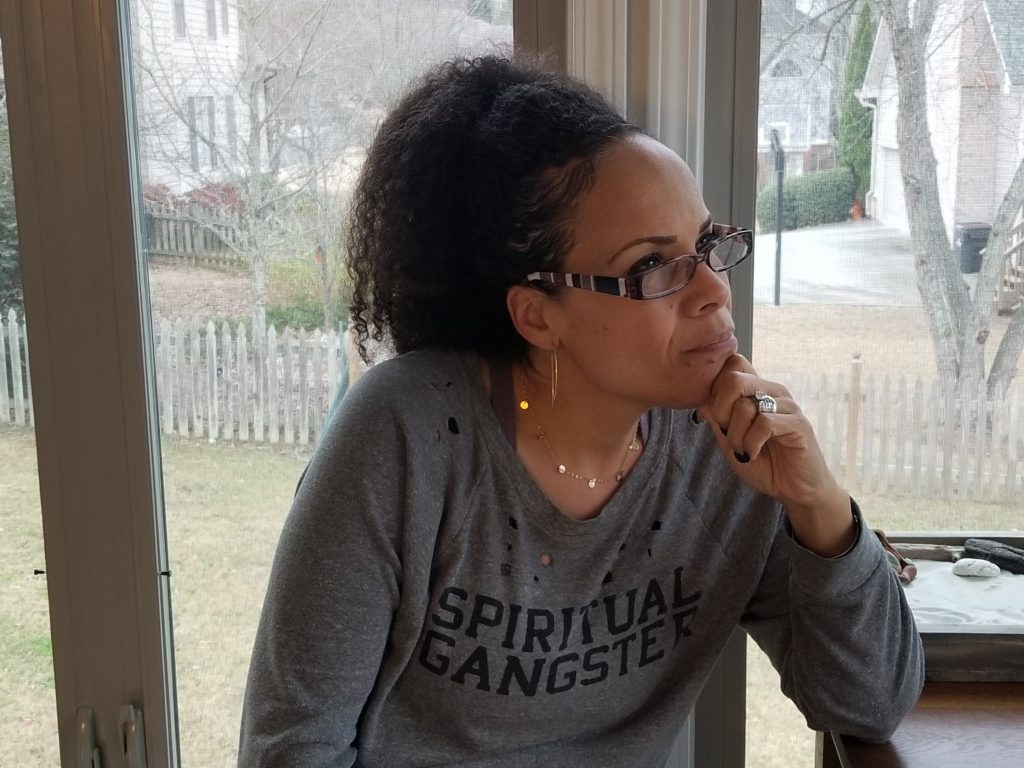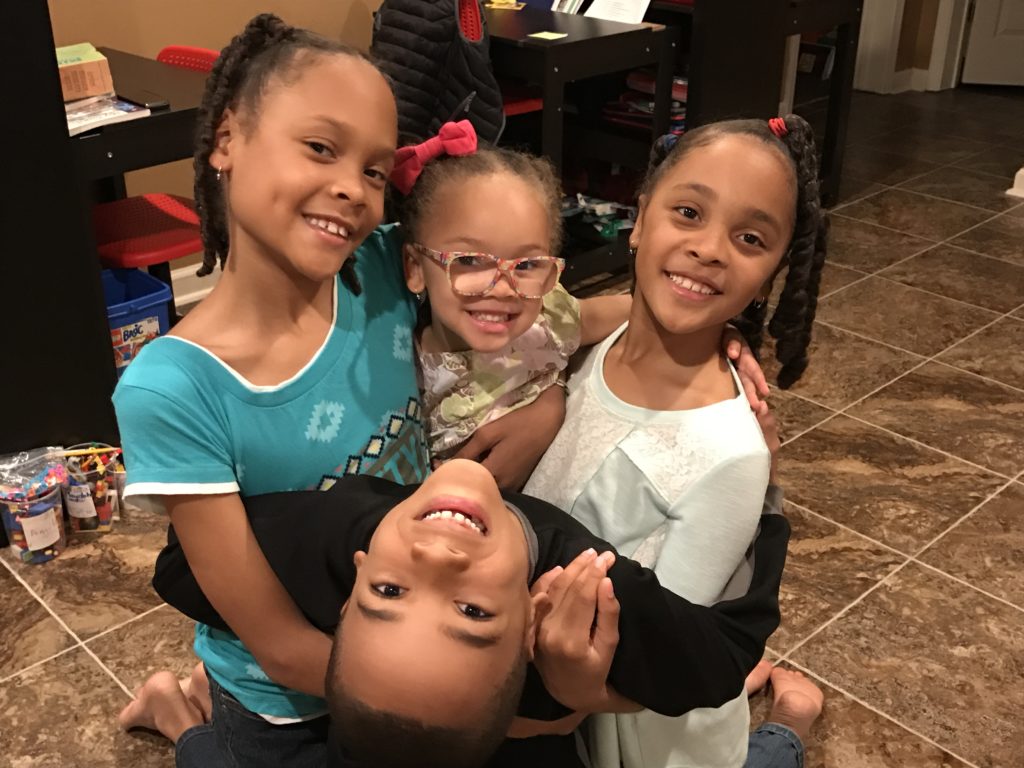I went away with the family for a week to the North Georgia woods near the Blue Ridge Mountains. It was very peaceful, full of the sounds of nature. The nights were dark and full of stars, and the days were slow, accompanied by the sounds of falling leaves and acorns, the rustle of squirrel and deer, and the soft tones of wind chimes on the porch. We spent the days reading and playing board games, walking through the trees, and sitting around a firepit. It was a time to slow down.

While I was there I found a copy of one of Jon Kabat Zinn’s books on mindfulness and meditation that I hadn’t read. As I read a chapter at a time, swinging in a hammock chair, I was reminded of the importance of staying in the moment and not rushing ahead to other things in my mind (What are we having for dinner? Did I defrost the chili? Should I wash a load of clothes before the day gets away?). It helped me to enjoy the days instead of rushing through them in my mind. But I noticed something else.
I wake up sometimes at night. Most of us do, even if we don’t realize it. We roll over in the bed, shift around, and generally fall back asleep. For me, I don’t always fall right back asleep. My eyes find the light from the streetlights or the alarm clocks and I wake up more. My brain likes to get going with thoughts (How much more time do I have to sleep? I’m going to be tired when the alarm goes off. I need to remember to check on the library book due dates. Maybe I should call my mom while I drive to work tomorrow.) But in the dark of the forest night, I didn’t have that chatter, that “hum” in my mind. I’d wake up, look up at the stars in the inky night and fall back asleep.

We came home on Saturday. After the unpacking and resetting for the evening, we settled back into the routine of family life on the weekend. Everything seemed normal and as peaceful as a house with four kids generally is. I stayed up later than usual, catching up on email and getting organized, thinking I could sleep in a little Sunday morning before virtual church service. But at 6 am, before the light of dawn appeared, the hum began. (You need to get started on your list. Did you check if we have almond milk? You really should clean out that storage room. My hip is sore. I didn’t do enough yoga this week. What are you cooking for dinner? Maybe I should run to the store. If I do all the planning today then I can get more done on Monday. You know you’ve got a long week because you’re working all weekend. What are we going to do about Halloween? You’re so far behind. A good mom would have already gotten pumpkins. You haven’t even decorated! Your kids are going to miss out on Halloween because you are too busy doing other things. You know you ate too much this week. Stop telling yourself it’s water weight. How are you going to get it together this week? You’d better straighten up and get serious.)
I got up. With all that noise in my mind, I wasn’t going back to sleep. Besides, now I felt a low-level anxiety about all that needed to be done and I was feeling like garbage about myself. The restlessness alone was enough to eject me from the covers. I wish I could say that I went to pray and meditate, but I went into autopilot. I don’t even remember what I did other than write a few things down, make tea, and eat handfuls of cashews before church. I didn’t eat my own lunch but picked at the Chipotle that everyone else ordered (I declined my own order, thinking that skipping lunch would be better to get off the vacay weight). I picked at dinner because I made spaghetti for the family because it was fast and easy, but I don’t eat pasta (too much bloat) and I didn’t plan anything ahead of time for myself. You’d think that the scale went down the next day and all the deprivation was worth it.
It didn’t. It wasn’t.

This is why the hum matters. I thought at first that the noise in my head was from being away from the peace of the forest, from not being on vacation anymore. And to a small degree, it was. I had allowed the change in scenery and the time away to help in letting my normal pattern of thinking fade. But as soon as I came home, I fell back into the pattern of background thinking that I’ve gotten used to, even when I didn’t need to on a Sunday morning. The problem with the hum is that it plays in the background and we rarely notice it. The thoughts just speed by and we feel uneasy or stressed or anxious and we’re not really sure why. I was fortunate. The hum that resumed seemed louder than usual because it had quieted while we were away, so I paid attention. Working on my mindfulness prepared me to slow and capture the thoughts, so I figured out what I was doing as I fell back into my pattern.
When we let the hum run unchecked, we live unintentionally. We act in ways that we don’t want to and don’t understand. We snack and eat foods that don’t support us because the background chatter says that we deserve to eat because we’re tired or work so hard, or because it won’t matter anyway because diets don’t work for me and I’m just stuck and this weight isn’t ever coming off anyway. We don’t start with questioning the thoughts because we don’t know they’re there. We sabotage our weight loss because we don’t support ourselves in our minds from the beginning, so our actions follow.
So what do we do about the hum? First, we tune in and listen. What thoughts are being offered by our hard-working brains? The brain tries to be efficient and think thoughts that have been thought before, so it’s likely that when you listen you’ll hear very familiar ideas. Then question the thoughts. Are they true? Do you want them to be? Would you rather think differently? Can you find a way that the thought you think might not be true?
Once you question the thoughts, you’ll find that your brain goes to work trying to answer the questions, so ask some good ones! A journal on your phone or good old paper is helpful here to capture the thoughts. Then when you find one that isn’t useful or helpful, you can find a new thought and practice thinking the new one when the old one comes up (it will). The more you practice the new thought, the more normal it will be to think it automatically. And that’s when you have replaced the old thought. Gradually, you’ll find that your new thinking is creating the peace and strength that you’ve been looking for. It certainly has for me! Now I don’t mean that I never get caught in old thinking patterns (see above!), but I get in more rarely and get out much faster than I used to. The thought work takes effort for sure. But I can attest that it’s definitely worth it! So keep at it and rewire that brain of yours – you’ll thank yourself later!

Have you tried thought work before? Was it helpful or did you get stuck? Self-coaching is super helpful, but sometimes we need a professional coach to help us root out the old patterns and start laying down new ones. A coach can also accelerate your progress in a way that you aren’t likely to do alone. I’m here to help! If you’ve decided it’s time to really get serious about losing your weight for good, that’s my specialty! I can also help with other kinds of mind work as well, so if you want to invest in you, reach out to me and let’s set up a mini-session to decide if we want to work together!
Do you want a sneak peek into what’s coming next on my YouTube channel? Come watch this week’s post, let’s talk more about the hum and I’ll let you in on what’s coming up!





